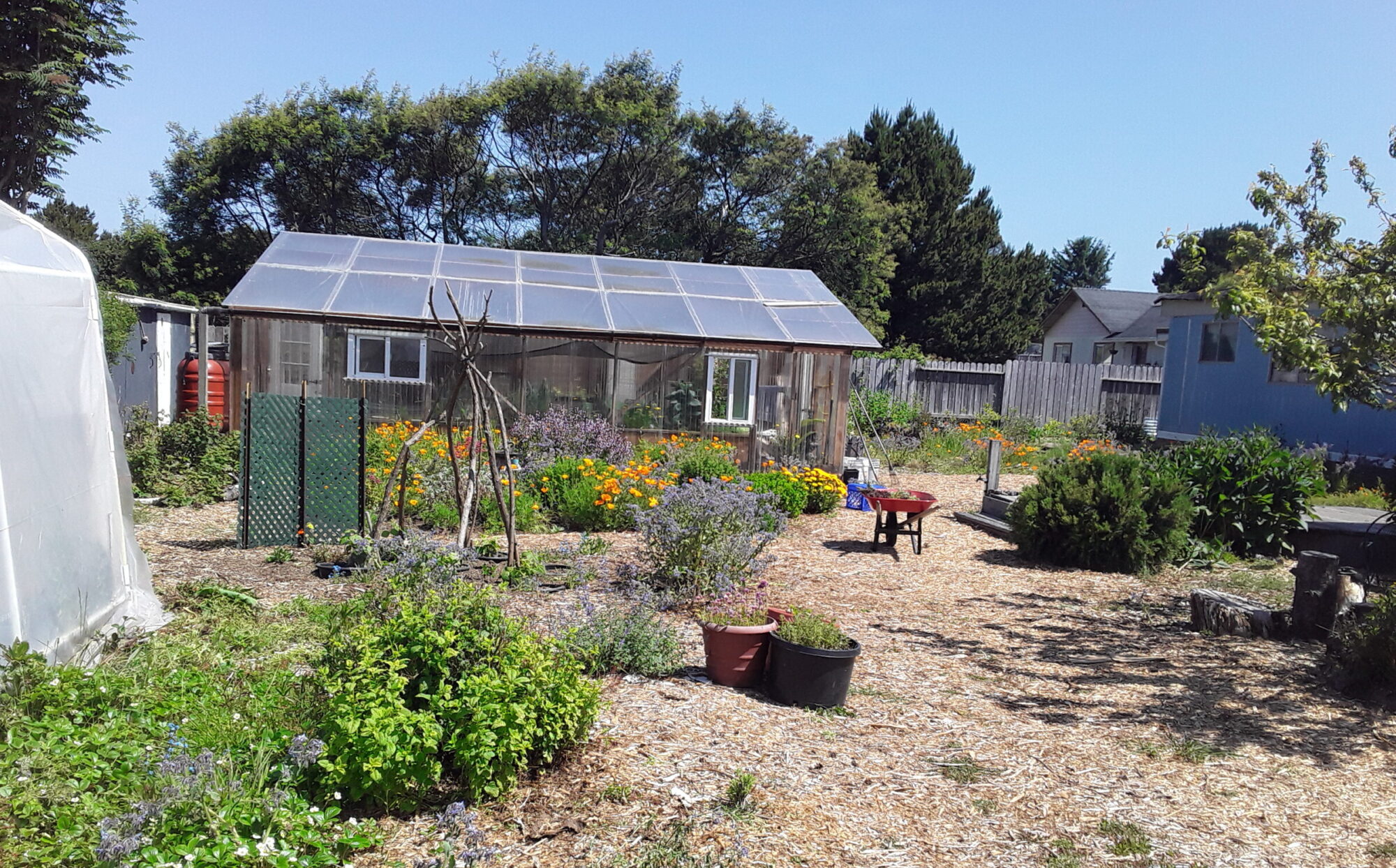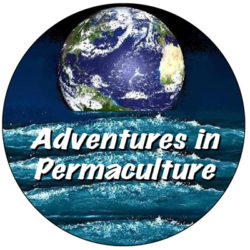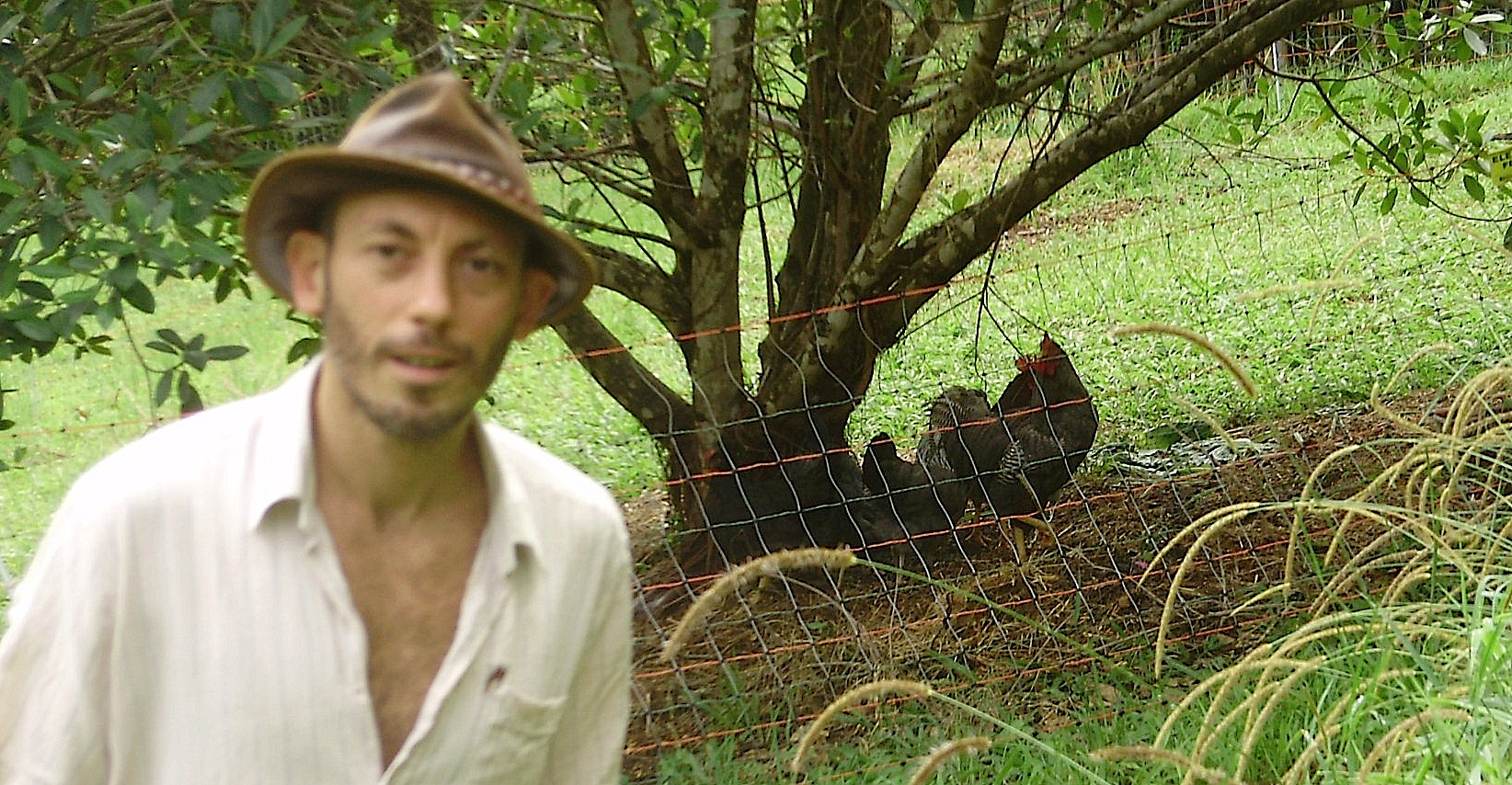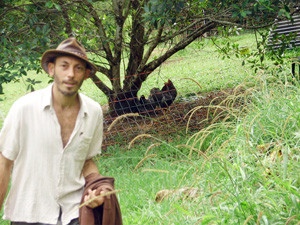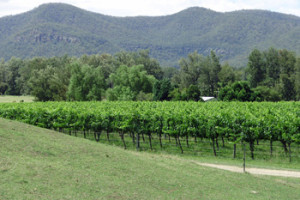
Everyone in Australia’s Hunter Valley seems to make a living in one of two ways: they’re either running the family vineyard or ranch, or they’re employed by one of the giant coal mining corporations.
The families work the valley while the corporations strip the hills. The two lifestyles clash when the corporations drill for what Aussie’s call “coal seam gas” next to family farms.
There’s a lot of economic pressure for the little guys to sell and leave the valley to the industrial extractors. It’s all a matter of scale, and huge business enterprises get the advantage of economies of scale.
What about human scale? Permaculturists ask themselves some pretty tough questions: Can we really depend on fossil-fuel driven supply chains owned by huge corporations? Is it possible to sustain ourselves with the land and resources we have? Have we bitten off more perpetual-growth paradigm than we can chew?
As economist E.F. Schumacher proposed in 1973, small is beautiful. We need to explore a future that is not unlike the past – a way of life that is sustained by human effort rather than fossil fuel.
Take, for example, one of the largest organic vineyards in Australian wine country. One middle-aged couple with hopes of retiring in the next decade are managing 80 acres of grapes. That’s enough produce to yield more than 100,000 bottles of wine.
They are trying to do all this with one full-time farmhand, a part-time assistant and a handful of young adults traveling the continent through Willing Workers on Organic Farms (WWOOF).
Throw in a hundred head of sheep, a small orchard and two vegetable gardens and you’ve got some burned-out family farmers shopping for a condo on the coast.
They need a lot of fossil fuel, both petroleum for tractors and other vehicles, and electricity from burning some of that coal being mined over the ridge. Irrigating 80 acres takes a fair amount of pumping. Delivering wine to Sydney is expensive.
A permaculturist would ask: is this sustainable? Is 80 acres of mono-crop a wise idea? Could a smaller vineyard produce a decent amount of wine for people around the valley – while the rest of the land is used to cultivate food?
Perhaps a smaller vineyard could be harvested by hand instead of a special tractor. Grass and hay around the farm might be sufficient feedstock for a smaller herd of sheep. Maybe people in the Hunter Valley would have plenty of work creating a self-reliant region, and they wouldn’t need to mine coal for sale to Asia.
Size does matter, but permaculture turns the paradigm upside-down in favor of small solutions. It says the Hunter Valley vineyard needs to be scaled back or perhaps run by a community of people who can all make a living together.
If a tractor is absolutely necessary to aid the harvest, maybe some acreage could be planted with a feedstock for biodiesel.
In the United States, most households have enough expenses to require two breadwinners. Two adults must work full time to earn enough cash for housing, food, water, energy, healthcare, childcare, vehicles, insurance and whatever amount of stuff we choose to accumulate (not to mention renting storage units in which to store the stuff). And everything we need and want will come from all around the world through a fossil-fuel driven global economic system.
Dinosaur Economics, I’d say! Why not consider life on a single income? If every American household had only one breadwinner (or two part-time earners), the country would enjoy full employment and lots of people would be free to garden, produce food, make their own clothes, ride bicycles and even entertain each other.
Who knows – one day we might not need corporations because we’re working for each other, whether it’s in rural Australia or suburban America. Why not consider a parallel economy where you or someone in your local area produce the things you eat, drink, wear and use in everyday life? Because the truth is, we need each other now, and in the future.
